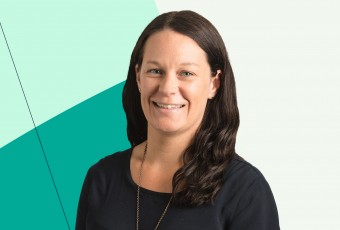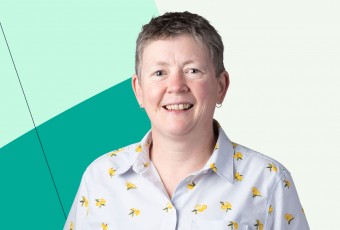11 February is the International Day of Women and Girls in Science. To celebrate, we spoke to two of our patent attorneys about how science has helped shaped their careers in IP.
Special Counsel Christine Egan is a member of the firm’s chembio patents team, where she combines her scientific training and research background with her expertise in patent law to provide clients with expert IP advice. Christine's specialist areas include nutrition, animal vaccines, and nutraceuticals and her clients include Crown Research Institutes, universities, major pharmaceutical and biotech companies, and food companies.
What is it about science that interested you at school?
I was always interested in the natural world as a child and wanted to understand how things work. I found studying science, especially biology, at school and later at university, which involved the process of exploration, experimentation and discovery, very exciting and intellectually stimulating.
How does your science background help in your career in IP?
My scientific background is essential as one of the key parts of my job as a patent attorney is to have a technical understanding of new ideas presented by inventors. Another key factor is the ability to communicate clearly with inventors and legal professionals and a scientific background can enhance the ability to communicate complex scientific language into clear and concise terms. A science background also gives you research skills that are essential for patent attorneys to understand the prior art, identify patentability issues, and stay up to date on the latest developments in relevant technological fields.
What do you enjoy most about your work?
I get enormous satisfaction from overcoming difficult examiner’s objections using legal and technologically based arguments, to gain patent protection for clients.
What advice would you give to girls or women considering a career in science?
The advice I would give is to follow your passion – identify the areas of science that genuinely interest and excite you and pursue these areas. There are lots of opportunities out there for women in science, from academia and research to industry and entrepreneurship.
Associate Rachel McIvor is a patent attorney specialising in biotechnology. Before joining the firm, Rachel worked as a patent examiner on the biotechnology team at the Intellectual Property Office of New Zealand, where she gained a wealth of experience in the field of biotechnology, primarily including the examination of applications relating to genetics, microbiology, immunology, pharmaceuticals, food technology, and molecular biology.
What is it about science that interested you at school?
I was fortunate at school to have a biology teacher with a contagious passion for science. I loved learning about biological systems and how they work. I was (and still am) in awe of the complexities of biological systems. There is so much we don’t know and that leaves room for exciting scientific breakthroughs and innovations.
How does your science background help in your career in IP?
I use my background in science every day in my role as an Associate in our life sciences patent team, be it discussing complex scientific concepts with clients or using analytical skills to assess relevant scientific literature.
What do you enjoy most about your work?
I enjoy working with clients and inventors at the forefront of scientific innovation. I've always kept up to date with new technology and follow new scientific breakthroughs with interest. I’m fortunate to work across a range of different technologies and enjoy that I can keep up to date with the latest scientific developments through my work.
What advice would you give to girls or women considering a career in science?
Don’t be afraid to talk to someone with a career in science. It may be a teacher, lecturer or someone with a different career in science that you find interesting. Careers in science are diverse and evolve over time, so there are likely opportunities out there that you don’t know about yet.














